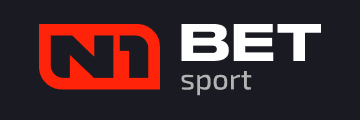Betting
Betting Exchanges vs. Sportsbooks - Which is Better?
Discover the key differences between betting exchanges and sportsbooks to determine which platform best suits your betting style. Explore how traditional sportsbooks operate, the unique advantages of betting exchanges, and the pros and cons of each.
SportsBoom offers honest and impartial bookmaker reviews to help you make informed choices. While we may earn commissions through affiliate links, our content remains independent and free from promotional influence. For more information, see our Content Transparency and How We Review pages.

Image Credits: Law Foundation
In this day and age, there are plenty of ways to bet on your favourite sports. The most popular are online sports betting sites and betting exchanges. But how do these two options differ, and which one is the smarter choice?
Today, we’re going to put online sportsbooks and betting exchanges under the microscope and see which betting platform comes out on top.
Traditional Online Sportsbooks: How They Work
Traditional online sportsbooks are platforms where users place bets on various sports events. Here’s a quick look into how they work:
● Setting the odds: Professional oddsmakers set the odds based on numerous factors, including team performance and player statistics. These odds determine potential payouts
● Placing bets: Users choose their bets (e.g., moneyline, point spread) and the amount to wager. Sportsbooks offer diverse betting options, covering different sports and events
● Bookmaker margin: Sportsbooks include a margin, or ‘vig’, in the odds to ensure profitability regardless of the event's outcome
● Payouts: After the event, the sportsbook calculates results and settles bets, crediting winnings to users' accounts
● User experience: Features like live betting, cash-out options, and promotions enhance the user experience, making betting more engaging and dynamic
Betting Exchanges: How They Work
Betting exchanges allow users to bet against each other, offering an alternative to traditional sportsbooks:
● User-to-user betting: Punters place and accept bets from other users, with one user’s loss being another user’s gain
● Setting the odds: Odds are determined by the users themselves, who can back (bet for) or lay (bet against) outcomes
● Commissions: Exchanges charge a commission on winning bets, usually a small percentage of net winnings, rather than building in a margin
● Market dynamics: Odds fluctuate based on user activity, reflecting collective sentiment and creating opportunities for strategic betting
● Trading bets: Users can trade bets like financial instruments, buying and selling positions throughout the event to lock in profits or minimise losses
● Transparency and control: Exchanges offer transparency and control, allowing users to set their own odds and view all available bets, providing a strategic edge
Sportsbooks vs. Exchanges: Which is Better?
Understanding the pros and cons of both sportsbooks and exchanges can help you decide which platform aligns best with your betting style.
Pros of Online Sports Betting Sites
● Wide range of markets: Sportsbooks typically offer a broad selection of sports and events to bet on, catering to diverse interests and preferences
● Convenience: They provide a user-friendly interface for placing bets, often with mobile apps that allow betting on the go
● Promotions and bonuses: Sportsbooks frequently offer bonuses, free bets, and promotions to attract and retain customers, providing added value
● Professional odds setting: Odds are set by experienced oddsmakers, ensuring accuracy and reflecting the likelihood of outcomes
Cons of Online Sports Betting Sites
● Fixed odds: Punters are limited to the odds set by the sportsbook, which may not always be as favourable as those on betting exchanges
● Limited flexibility: You cannot set your own odds or trade positions during an event, restricting strategic betting opportunities
● Profit margin: Sportsbooks include a built-in margin in their odds (vig), which can reduce potential winnings compared to exchanges with lower commission rates
Pros of Betting Exchanges
● User-determined odds: Bettors can set their own odds by either backing (betting for) or laying (betting against) outcomes, often resulting in better odds compared to traditional sportsbooks.
● Competitive odds: The absence of a fixed profit margin allows for more competitive odds, potentially maximising returns for successful bets.
● Trading capabilities: Users can trade positions during an event, locking in profits or minimising losses based on changing odds and game dynamics.
● Transparency: Exchanges offer transparency by displaying all available bets and their corresponding odds, enabling informed decision-making.
Cons of Betting Exchanges
● Learning Curve: Using a betting exchange effectively requires understanding how to set odds, trade bets, and manage risk, which can be daunting for new bettors
● Market Volatility: Fluctuating odds can present challenges, as users need to monitor and react to changes in real time to optimise their betting positions
● Commission Charges: Exchanges charge a commission on net winnings, which, while typically lower than traditional sportsbook margins, still reduces overall profitability
Final Thoughts on Modern Betting Platforms
In reality, there isn’t really a direct comparison to be made between online sports betting sites and exchanges.
Online sportsbooks offer a wide range of markets, convenient interfaces, and professional odds setting, making them accessible and straightforward for most bettors.
By contrast, betting exchanges provide user-determined odds, competitive pricing, trading capabilities, and transparency, appealing to those who seek more control and strategic opportunities in their betting.
Ultimately, neither platform is inherently superior to the other; they simply cater to different preferences and strategies. Whether you prefer the structured simplicity of sportsbooks or the dynamic flexibility of exchanges depends on your betting style and objectives. Most importantly, both options offer a fun and exciting experience.

With 10 years of experience in content writing, Alyx has produced countess guides, reviews and articles covering a wide range of topics in the iGaming industry. She loves anything to do with online casinos, as well as UK and international sports betting.
Related Content
- What is Moneyline in Betting
- What is a Unit in Betting?
- NY Assemblyman Says Politics Holding Up Casino Licenses
- What Does Overround Mean in Betting?
- What Does Each Way Betting Mean?
- What does evens mean in betting
- How Betcorrect Finds Success in Nigeria's Dynamic Market
- What is Cash Out in Betting?
- What is a Bet Builder bet?
- What is a Patent Bet
- What is Matched Betting?
- What Does BTTS Mean in Betting
- What is a Parlay in Sports Betting?
- What is Draw No Bet?
- What is a Trixie Bet
- What is a Yankee in Betting
- What is Arbitrage Betting?
- What Does Handicap Mean in Betting?
- What Is Betting Insurance
- What is an Accumulator Bet?
- What is a Treble Bet?
- What is a Heinz Bet?
- What is a Forecast Bet?
- What is a Round Robin Bet?
- What is a Tricast Bet?
- How to Read Betting Odds
- What Does Over Under Mean in Betting?
- What is a Placepot Bet?
- Recognizing Influence: Insights from Lois Bright, Ranked Among Top 100 Most Influential People in Gaming
- Innovative Partnership: Betcorrect Makes a Bold Move, Signing "Nasboi" as Company’s Brand Ambassador
- Bronny James: The Unlikely Favourite for the First Overall NBA Draft Pick
- What is a Canadian Bet?
- What is a Super Heinz in Betting? Fully Explained
- What is a Lucky 63 Bet? Fully Explained
- What is a Nap in Betting? The Meaning & Basics
- What Does Doubles Mean in Betting? Fully Explained
- What is a flag bet?
- What is a Lucky 31 Bet? Fully Explained
- 3-Way Betting in Football Explanation & Tips
- Different Types of Bets Explained
- What is a Cover Bet?
- What Does PK Mean in Betting?
- What is a Multiple Bet?
- What is a lucky 15 bet
- Brazil’s Fifteen Percent on Winning Can Be Detrimental to the Growth of its Gambling Industry
- What is a Goliath Bet? Fully Explained
- The future of betting in Nigeria: Expert predicts more ground to cover
- Totals Betting Explained - What is a Totals Bet?
- What is a Double Chance Bet? Tips & Guide
- Closing Line Value: What Is CLV In Sports Betting?
- What Is Courtsiding Betting?
- What are Teasers in Sports Betting?
- Live Sports Wagering: Tips for In-Play Strategies
- Bankroll Management for Sports Betting - Tips and Guide
- What is a Prop Bet in Sports Betting?
- What Do ‘Action’ and ‘No Action’ Mean in Sports Betting?
- What is an ‘If’ Bet in Sports Betting?
- What is the Vig (Vigorish) in Sports Betting?
- What Does Fade Mean in Sports Betting?
- What is a Push in Sports Betting?
- What is tote sports betting?
- How to Analyze a Team’s Form for Sports Betting
- Exploring Exotic Wagers: Beyond the Basics
- The Evolution of Online Sports Wagering
- How to Read Sports Betting Lines at Online Sportsbooks
- Beating the Cheats: Nigeria's Tech-Driven Fight for Betting Integrity
- Using Advanced Strategies for Sports Predictions
- What Does SP in Betting Mean?
- What is Hedging a Bet?
- Using Social Media for Sports Insights and Wagering
- What is Puck Line Betting?
- Exclusive: The NHL Draft in Las Vegas – Experts Explain Its Impact on Hockey Betting
- The Psychology of Risk in Sports Wagering
- The Science of Setting Betting Odds
- Understanding the Concept of Implied Probability Betting
- Futures Wagers: Long-Term Strategy for Season Predictions
- Understanding the Role of Syndicates in Sports Wagering
- How to Manage Emotional Bias in Sports Wagering
- The Role of Technology in Modern Sports Wagering
- The Role of Algorithms and AI in Sports Predictions
- Predictive analytics in sports betting
- Most Common Mistakes When Wagering on Sports
- The Economics of Sports Wagering: How Bookmakers Make Money
- Proposed Las Vegas film studios plan to disrupt Hollywood monopoly
- 3 Best AI Sports Betting Prediction Software (2025)
- The Sunk Cost Fallacy in Gambling
- Famous Gamblers and Their Personalities
- How to Interpret Line Movement and Sharp Action
- The Psychology of the Bet: Why We Gamble
- Virtual Reality Gambling: The Next Frontier
- The Rise of Mobile Gambling Apps
- The Dark Side of the Game: Why Betting Integrity Matters
- Gambling: Entertainment or addiction?
- Beyond Red or Black: A Beginner's Guide to Blackjack Card Counting
- Myth Busters: Becoming a Professional Gambler
- Stranger Than Fiction: The Most Bizarre Bets Ever Placed
- The Odds Are Stacked: Understanding Math in Gambling
- The MIT Blackjack Team: How Math Conquered Casinos
- The Top 5 Biggest Casino Wins of All Time
- Spread Betting Explained



